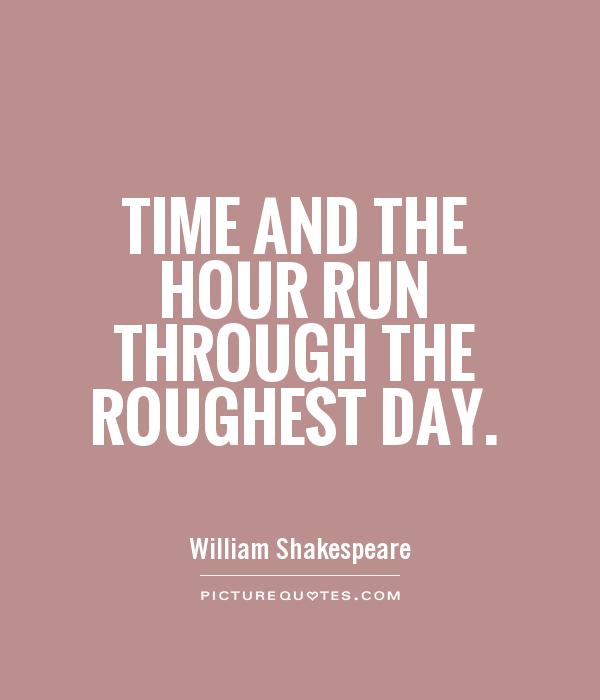Time and the hour run through the roughest day

Time and the hour run through the roughest day
In William Shakespeare's play, Macbeth, the line "Time and the hour run through the roughest day" is spoken by Macbeth himself as he reflects on the passage of time and the inevitability of fate. This line encapsulates the theme of time and its relentless march forward, regardless of the challenges and obstacles that may come our way.Throughout the play, Macbeth is consumed by his ambition and desire for power, leading him to commit heinous acts in order to achieve his goals. However, as the story unfolds, Macbeth begins to realize that time is not on his side and that his actions have set in motion a series of events that he cannot control. The line "Time and the hour run through the roughest day" serves as a reminder to Macbeth that no matter how difficult or tumultuous a situation may be, time will continue to move forward, bringing with it the consequences of his actions.
This line also speaks to the idea of fate and destiny, suggesting that there are forces at play beyond our control that shape the course of our lives. Macbeth's downfall is ultimately the result of his own choices and actions, but it is also influenced by the larger forces of fate and time. The phrase "the roughest day" implies that even in the face of adversity and hardship, time will continue to pass, carrying us through the most difficult moments of our lives.
Shakespeare's words in this line are a powerful reminder of the fleeting nature of time and the importance of living in the present moment. They serve as a cautionary tale to those who seek to manipulate time or defy fate, reminding us that ultimately, we are all subject to the passage of time and the consequences of our actions. As Macbeth learns too late, time waits for no one, and even the roughest days will eventually come to an end.












 Friendship Quotes
Friendship Quotes Love Quotes
Love Quotes Life Quotes
Life Quotes Funny Quotes
Funny Quotes Motivational Quotes
Motivational Quotes Inspirational Quotes
Inspirational Quotes